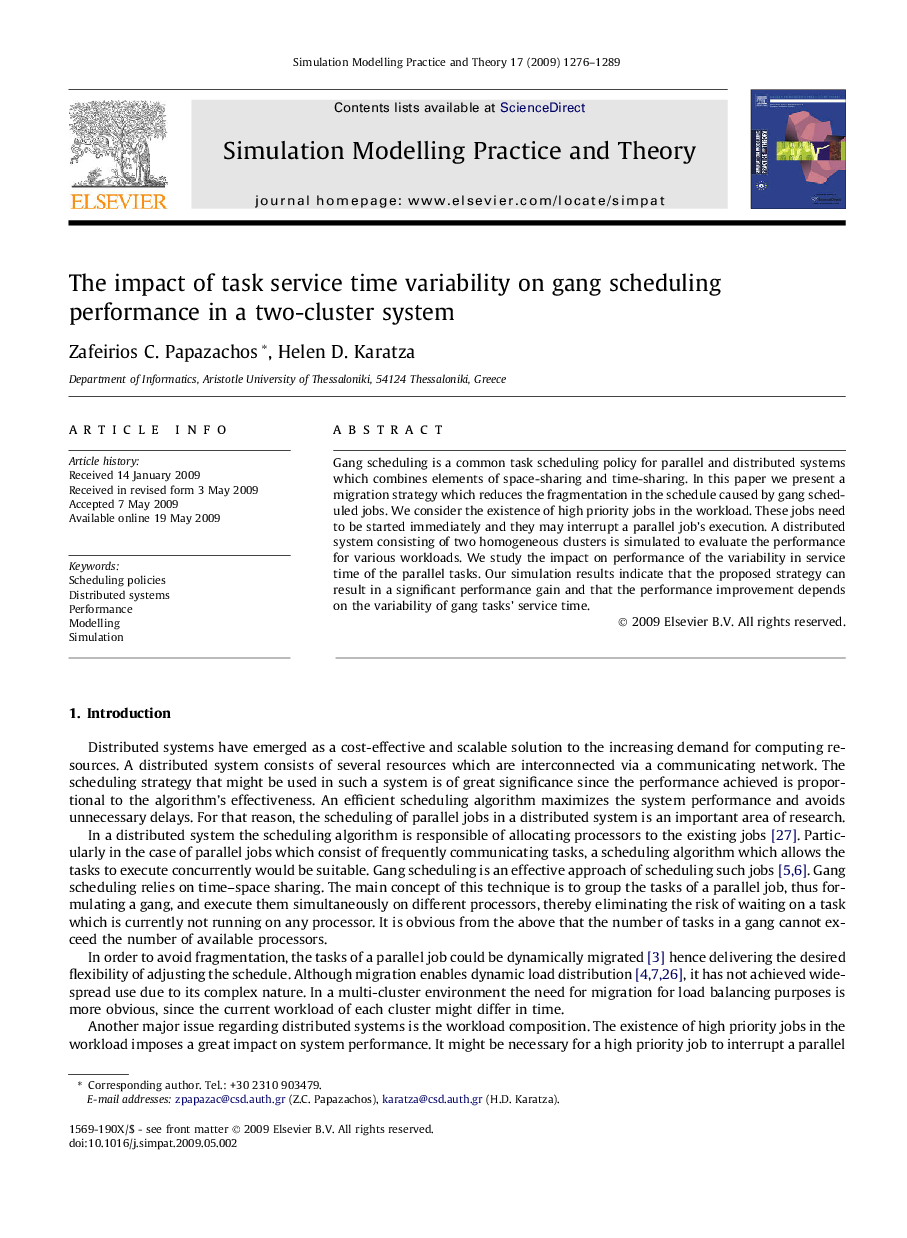| Article ID | Journal | Published Year | Pages | File Type |
|---|---|---|---|---|
| 492104 | Simulation Modelling Practice and Theory | 2009 | 14 Pages |
Gang scheduling is a common task scheduling policy for parallel and distributed systems which combines elements of space-sharing and time-sharing. In this paper we present a migration strategy which reduces the fragmentation in the schedule caused by gang scheduled jobs. We consider the existence of high priority jobs in the workload. These jobs need to be started immediately and they may interrupt a parallel job’s execution. A distributed system consisting of two homogeneous clusters is simulated to evaluate the performance for various workloads. We study the impact on performance of the variability in service time of the parallel tasks. Our simulation results indicate that the proposed strategy can result in a significant performance gain and that the performance improvement depends on the variability of gang tasks’ service time.
